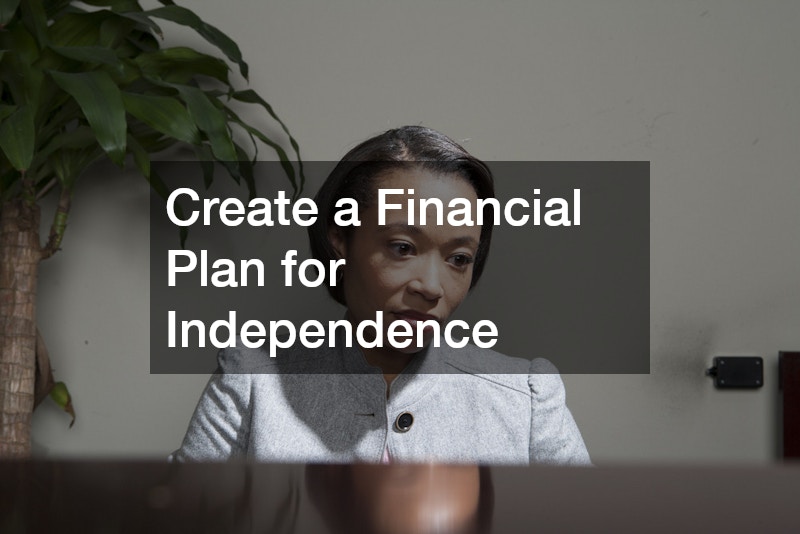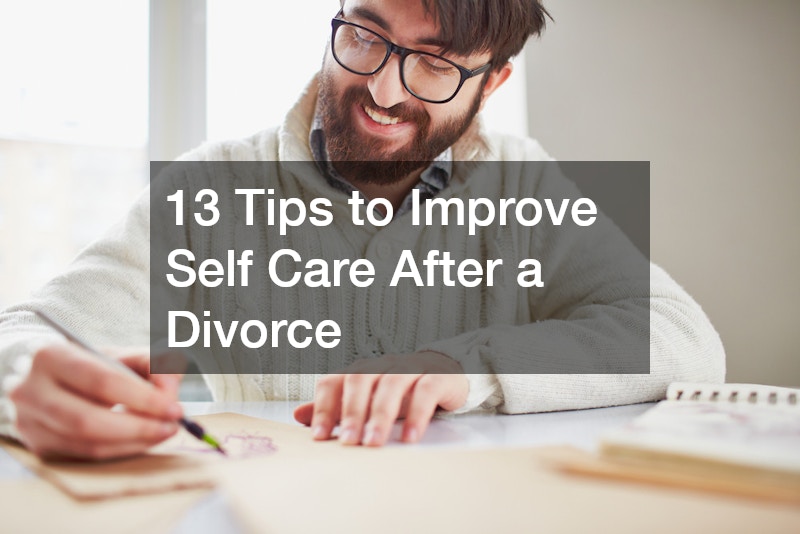Self care becomes paramount in the wake of a divorce, a transitional period often fraught with emotional turmoil and stress. It is a time when taking care of oneself is essential for healing and moving forward, both emotionally and physically. Engaging in these 13 tips to improve self care after a divorce can help you regain your strength, independence, and confidence, setting the stage for building a better future.

Establish a Daily Routine
When life feels unpredictable, establishing a daily routine can provide stability and structure. A well-defined routine helps in reducing stress by allocating time to activities that promote well-being and productivity. Scheduling regular breaks and leisure activities is equally important, and choosing hobbies like tennis or spending time journaling can contribute to emotional healing and personal growth.
Creating a daily routine anchored by steadfast habits can serve as a foundation for your new life post-divorce. This structure can be as simple as morning exercises or evening relaxation routines to help manage stress levels. Additionally, incorporating small home projects can provide a sense of accomplishment and create an environment that’s welcoming and comfortable.
It’s also beneficial to make time for necessary logistics, such as certified process serving and meetings with a divorce attorney. By scheduling these activities within a structured routine, you preparedly navigate your obligations, setting healthy boundaries around the time dedicated to legal and administrative tasks.
Prioritize Physical Health
Focusing on your physical health is a crucial component in your journey to improve self care that can significantly impact your overall well-being. Regular exercise helps not only in maintaining physical fitness but also in boosting your mental health. Activities like swimming can be rejuvenating, so investing in chlorine resistant swimwear can ensure you make the most of your aquatic routines.
Integrating new health practices like microneedling treatment for skin rejuvenation or IV hydration therapy for migraines can enhance how you feel physically and mentally. These methodologies offer a way to improve your outward appearance, which in turn can enhance self-confidence during the challenging post-divorce transition. Taking care of your external health shows a commitment to your well-being, sending a positive message both to yourself and those around you.
Monitoring dietary habits and hydration is another important aspect of physical health. Ensuring your body gets essential nutrients can fortify your immune system, keeping you healthy as you transition into a new life phase. Implementing dietary changes based on professional consultations can further tailor your physical care to your unique needs.
Set Boundaries With Others
Post-divorce life often requires reassessing personal boundaries with others. It is crucial to establish these limits to protect your emotional health and create a safe space for healing as you improve self care. Being assertive in communicating your new boundaries can help manage expectations and reduce potential stressors.
Setting boundaries may involve limiting contact with your former spouse or creating a clear distinction between your private life and public interactions. This process is crucial in fostering an environment where you can focus on recovery and personal growth. In parallel, maintaining healthy relationships with supportive friends can serve as a solid foundation for emotional stability.
By ensuring that others respect your new boundaries, you lay the groundwork for relationships that are mutually respectful and empowering. This newfound autonomy also gives you the strength to engage with the demands of daily life, such as engaging with professionals needed in this new chapter, like a divorce lawyer.

Focus on Personal Hobbies
Delving into personal hobbies can be therapeutic and provide a sense of fulfillment. Whether it’s gardening, painting, or learning a new instrument, hobbies offer a way to express creativity and portion focus on positive distractions. A hobby barn or greenhouse can serve as a physical embodiment of this commitment to improve self care.
Rediscovering old interests or exploring new ones encourages personal development and sparks joy during difficult times. It’s a way to channel energy into something constructive and away from potential negative emotions. Maintaining a hobby serves as a reminder that life is not solely defined by divorce but filled with endless opportunities for happiness and achievement.
By dedicating time to these activities, you help reinforce a sense of identity that extends beyond marital status. This commitment brings immense satisfaction and facilitates a much-needed sense of forward momentum, contributing to a more positive outlook on life.
Remain Active
Physical activity is an ally in combating the emotional stresses associated with divorce and can help improve self care. Engaging in sports or exercise regimens can greatly contribute to emotional balance and overall wellness. Whether it’s jogging, swimming, or gym workouts, remaining active supports physical health and boosts self-esteem.
Specifically, swimming as an exercise can provide holistic health benefits, aiding in relaxation and muscle development. When building your fitness routine, it’s smart to consider investing in quality swimwear for frequent pool activities. Additionally, maintaining the lower pH in pool water ensures a safe and enjoyable swimming environment.
Staying physically active also encourages the development of disciplined habits that translate to other areas of life. By challenging yourself physically, you reinforce a mindset of resilience and adaptability that can positively impact your recovery journey following a divorce.
Treat Yourself
Treating yourself refers to occasionally indulging in experiences or purchases that bring joy and satisfaction. This does not necessarily mean large expenses but rather small joys like a day out for your favorite activities or developing refreshing culinary skills. It’s a practice of rewarding yourself for navigating a challenging transition and can help you improve self care.
Engaging in self-treats does not solely revolve around material pleasures but also quality moments that cultivate self-love and gratitude. Experiences such as trying out elective cosmetic dental services or enjoying a wellness day spa can be immensely rewarding. Honoring personal achievements, no matter how small, can be a crucial factor in rebuilding one’s self-esteem.
The idea of treating oneself can act as a metaphorical lighthouse during turbulent times. The key is to remain mindful of such indulgences, using them as tools for promoting balance and personal care rather than as forms of escapism.

Practice Mindfulness and Meditation
Practicing mindfulness and meditation can deeply relax the mind and center emotions. Techniques that emphasize deep breathing, such as those in meditation, have a profound effect on stress reduction and mental clarity. These practices offer a path to acceptance and inner peace during what can be a tumultuous time post-divorce.
Mindfulness involves a conscious awareness of the present, fostering a deeper understanding of one’s emotions without the overriding need to react. Establishing a meditation space in your home, perhaps anchored by the serenity of an indoor greenhouse, can elevate the experience and impact. Mindfulness also encourages intentionality in daily actions, allowing you to find joy in simple moments as you improve self care.
Regular practice of such techniques can enhance emotional resilience and adaptability, equipping you with tools to better handle life’s challenges. These exercises help reduce anxiety and promote a sense of balance, serving as an anchor during periods of emotional upheaval.
Seek Professional Counseling
In the wake of divorce, seeking professional counseling can be profoundly beneficial. A counselor offers a non-judgmental space to process emotions and discuss challenging experiences. This supportive environment allows you to explore feelings in depth and gain clarity on the divorce’s impact on your life.
Professional insight and mental health strategies are offered, which can facilitate emotional release and personal growth. Choosing the right support involves considering professionals like a divorce lawyer who can offer legal guidance on logistics while counseling focuses on emotional health. Counseling can guide you in rediscovering self-confidence and independence essential for post-divorce life.
Working with a counselor can also explore effective communication techniques, aiding in resolving interpersonal conflicts and understanding personal responsibility. Investing in your mental well-being is as crucial as the decision to leave the marriage, setting a strong foundation for personal recovery.
Reconnect With Supportive Friends
In times of emotional stress, the value of supportive friendships cannot be overstated. Reconnecting with trustworthy friends helps keep your emotional needs met and affords you a sense of belonging and camaraderie. These relationships can provide perspective and comfort, assisting in navigating the difficulties of a post-divorce life.
Balancing social interactions ensures you maintain a healthy network of people ready to offer support. Engaging in regular get-togethers, whether casual meals or shared activities, fosters mutual interaction and understanding. As you improve self care, it’s important to surround yourself with friends who encourage positivity and personal growth.
A strong support system helps validate emotional experiences and offers guidance throughout your healing journey. These friendships can act as pillars to lean on, a critical aspect of rebuilding a fulfilling life after divorce.

Allow Yourself Time to Grieve
The end of a marriage marks the need for personal grief, a legitimate process that takes time. Allowing yourself to experience a wide range of emotions validates sentiments and honors the past relationship’s influence. Grieving is highly personal, providing an opportunity to reflect and learn from the experience to grow as an individual.
Patience is crucial when navigating these complex emotions, as is recognizing that the path to healing is nonlinear. As you improve self care, practicing self-compassion allows us to acknowledge pain while understanding that it’s not a permanent state. It empowers us to give ourselves permission to feel these emotions without judgment.
Healthy coping mechanisms, perhaps alongside professional guidance, can facilitate grief processing more constructively. This might involve creative outlets, such as writing or art, or simply taking time in nature to decompress and reflect. Acknowledging grief and permitting yourself the required space and time to move through it lays a solid foundation for future happiness.
Improve Your Home
Your home environment significantly influences your emotional state, and post-divorce is an excellent time to make it truly yours. Improving your living space might include tackling home projects that introduce fresh life or hire for specific services like custom made kitchen cabinets. Implementing such changes can instill a renewed sense of ownership and pride in your home.
Maintain mindfulness of your immediate surroundings, as shifts in layout or décor can create a sanctuary for relaxation and reflection. Small adjustments, like reorganizing furniture or adding personal accents, give your space a unique ambiance attuned to your post-divorce journey. It is important to tailor your home to reflect current priorities and aesthetics.
Beyond appearances, thoughtful home improvement projects may strengthen your self-sufficiency and spark joy. Simple changes in your home can translate to a more peaceful lifestyle, carving out a space that promotes emotional and mental well-being as you continue to embrace this new chapter.
Celebrate Small Victories
Celebrating small victories is an essential practice as you improve self care and maintain a positive mindset after a divorce. Acknowledging progress and accomplishments, regardless of scale, can foster feelings of hope and resilience. Recognize contributions, work endeavors, or personal breakthroughs that emerge from this formative period.
Practicing gratitude in response to these achievements encourages a constructive focus on the present and the possibilities they signify for the future. Small victories extend beyond material gains, symbolizing the incremental steps toward brighter, more fulfilling life phases. Celebrating them can range from enjoying an evening out in your favorite clothes to treating yourself to improving cosmic dental services.
Maintaining a record or journal of these mini-milestones can help track your progress and reframe any setbacks as solvable challenges. These aspirational moments highlight the potential for success and enjoyment in post-divorce life, inviting a mood of optimism and readiness for the unforeseen yet exciting journey ahead.

Create a Financial Plan for Independence
Developing a financial plan post-divorce is a key step toward achieving autonomy and stability as you improve self care. Revisiting your financial landscape allows you to assess assets, obligations, and savings while mapping a path for the future. Work with financial advisors if needed to create a sustainable, worthy plan that suits your life phase goals.
Strategize realistically about current income and expenditures to manage expenses and build savings for future endeavors and security. Consider lifestyle goals and desires, plan on necessary expenses, and prioritize savings to support them. A well-structured financial plan allows you to establish confidence and ensure long-term stability.
By fostering a level of financial literacy, you provide opportunities for growth and investment, underpinning a sound foundation of security. Also, crafting a financial plan around short and long-term goals sets a matter-of-fact trajectory for advancement—every financial decision made by designing this plan contributes to your empowerment.
Navigating life post-divorce is undeniably challenging but with purposeful measures to improve self care, it can transform into a phase marked by growth and personal advancement. These diverse approaches encourage healing across emotional, physical, and financial dimensions that are integral to fostering holistic well-being. With structured practices like establishing routines, seeking professional guidance, and ultimately celebrating milestones, empowerment is within reach
